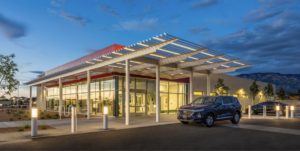Have you ever thought about how difficult it is to stand on two feet? Try balancing an action figure or a piece of furniture with only two legs. It is challenging. People can do it because of their sense of balance.
The human brain receives signals from different body parts, including the eyes, spine, ears, and others, that allow us to make adjustments to keep from falling.
With many parts working together, there are more chances of something going wrong. If one part of the system goes awry, the person starts to feel dizzy.
What Is Dizziness?
There are several ways to describe dizziness:
- It can be an impairment of your spatial orientation.
- Feeling several sensations at the same time.
No matter how the description, the feeling is unnerving and can potentially disrupt your life.
Dizziness can occur at any time, whether sitting or standing up. It usually becomes worse when you try to walk or move your head. In some cases, looking around already increases the dizzy feeling.
When dizzy, a person can also feel the following sensations:
- Lightheaded
- Faint
- Unsteady
- Nauseous
You feel like falling and cannot regain your balance, needing something sturdy like a wall to prop yourself up. Closing your eyes may alleviate some of the feelings.

Why Are You Feeling Dizzy?
The first step to treating dizziness is to identify the cause. Inner ear conditions are some of the most common.
Ear Infections
Viruses or bacteria can infect your ears which irritates the inner ear. The inflammation would interfere with the signals sent by your ears to the brain.
Two nerve branches can get affected. The cochlear nerve is responsible for hearing signals. The vestibular nerve oversees signals about balance.
Benign Paroxysmal Positional Vertigo
Also known as BPPV, this is one of the most common causes of dizziness or vertigo. It is a feeling that you or the inside of your head is spinning. A sudden change in your position, like bending over or standing up from bed, triggers it.
While it is bothersome, it is rarely seen as a life-threatening condition; unless it causes the person to fall over and get injured.
Ménière’s Disease
Having too much fluid in your ear means you have Ménière’s disease. While experts are unsure how it happens, almost anyone can develop this. It is most common in people ages 40 to 60.
The condition can be accompanied by the following:
- Distorted or loss of hearing
- Nausea
- Vomiting
- Ringing in the ear
The attacks associated with Ménière’s disease are sudden. They can last from a few minutes to 24 hours.
Brain Injuries
A traumatic brain injury, migraine, or multiple sclerosis can lead to feeling dizzy. These will have other more concerning symptoms if any of them are the cause.
Cardiovascular Conditions
Your brain needs consistent blood circulation to work. Certain cardiovascular conditions can cut off that supply, including:
- Low blood pressure
- Narrowing of arteries
- Irregular or rapid heartbeats
How Dizziness Is Treated
Treating dizziness is dependent on the cause. A doctor will diagnose your condition to identify why you are feeling dizzy.
Antibiotics are prescribed for inner ear infections. BPPV has several potential treatments. Ménière’s disease symptoms are addressed through lifestyle changes.

Preventing Dizziness
While treatment is available for most causes, preventing dizziness is better than treatment. Again, that would depend on your condition, but the general things you can do are:
- Reduce consumption of tobacco and alcohol
- Reduce caffeine
- Avoid too much salt
A healthy lifestyle can help deter most conditions that lead to chronic dizziness.
Get Fast Treatment at PRESNow 24/7 Urgent and Emergency Care
While dizziness is not a cause for panic, it can mean something more dangerous, especially if it comes with other symptoms. If you are experiencing chest pains, slurred speech, a high fever, trouble moving, or numbness in your body, visit a healthcare provider right away.

Unlike most ERs or urgent care centers in the area, PRESNow 24/7 Urgent and Emergency Care in Albuquerque, patients are only billed for the level of services they need. The ER and urgent care are open 24 hours a day, every day. No appointment is required for in-person visits.
PRESNow 24/7 Urgent and Emergency Care has four convenient locations:
- PRESNow 24/7 Urgent and Emergency Care Paseo/San Pedro is located at 6400 Paseo Del Norte Blvd. NE, Albuquerque, NM 87113, and may be reached at 505-596-2100.
- PRESNow 24/7 Urgent and Emergency Care Coors/Western Trail is located at 4515 Coors Blvd. NW Albuquerque, NM 87120, and may be reached at 505-596-2200.
- PRESNow 24/7 Urgent and Emergency Care Isleta/Rio Bravo is located at 3436 Isleta Blvd SW, Albuquerque, NM 87105, and may be reached at 505-596-2300.
- PRESNow 24/7 Urgent and Emergency Care Menaul/Pennsylvania is located at 7400 Menaul Blvd NE, Albuquerque, NM 87110, and may be reached at 505-596-2400.















